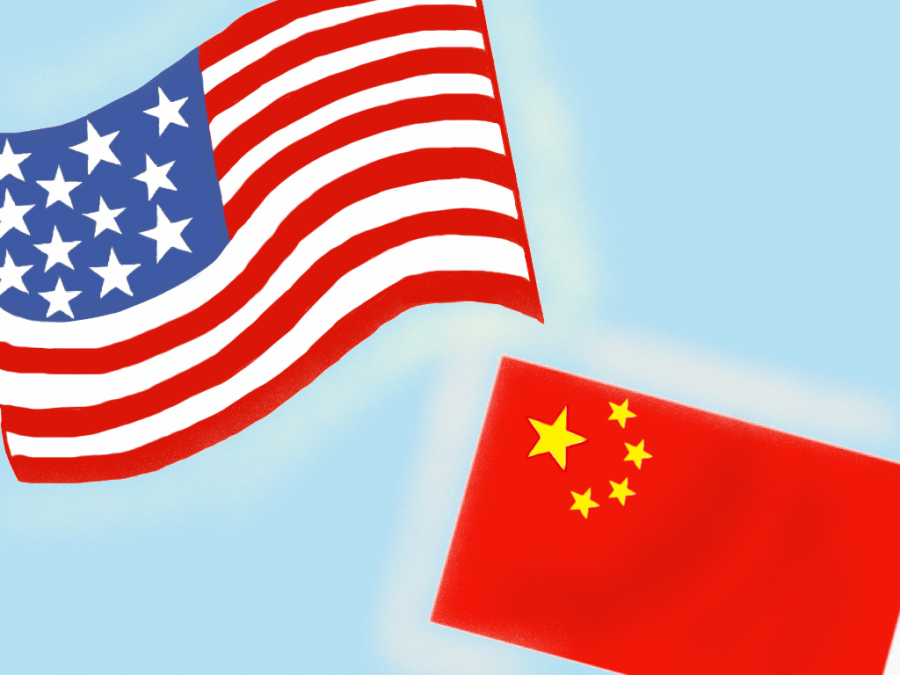Being in the 1.5 Generation
February 15, 2019
Throughout my life, I’ve always looked to my parents for inspiration and motivation to succeed. Growing up as a comfortable, middle-class, first-generation Asian-American, it’s easy to forget the sacrifices my parents made so that my brothers and I could grow up in a community filled with others like me. Every day, their countless stories of hardship, xenophobia, and racism that propagated the communities in California they inhabited before finding Arcadia inspire me to continue pushing, to continue learning, to continue utilizing every opportunity, and to continue living my life to its fullest, the one they worked so hard to give me.
However, at the same time, while I’m proud to be able to technically call myself first-generation, my experiences as a child of immigrants differ greatly from experiences of other first-generation Asian-Americans. My parents—similar to the parents of many around me in my community—moved to America when they were relatively young (teenager or younger) and hence, spoke English for a large majority of their life. Thus, I, amongst others in my community, grew up never having to help my parents translate, file taxes, decipher legislature, and other experiences that one might expect from a first-gen Asian-American. If anything, my parents are often much more knowledgeable than me when it comes to American affairs such as culture, law, economy, and more. In addition to speaking fluent, accentless English, my parents are also college-educated and polylingual.
Thus, growing up, I’ve had the privilege of growing up with parents that not only grew up in a different country but have also masterfully intertwined their American and Asian culture. I’ve never had to turn to friends, teachers, or the internet for most problems, such as American law, economy, English essays, and homework, due to the fact that my parents have been able to answer them without falter. However, because my parents have spent so much of their life living in America, not having to translate for my parents or having to handle experiences that other first-gens may experience has also contributed to what I believe is a loss of culture.
Cantonese is the first language that I learned to speak as my parents found it necessary that I learn my native tongue first. For that short period of time after I learned Cantonese but before I learned English, I thought, spoke, and counted in Cantonese. However, after entering school and learning English at a young age, Cantonese began rapidly fading from daily use. For five to seven hours every day, I listened, read, learned, wrote, and spoke in English, every day challenging my knowledge and grasp of the English language. At home, while Cantonese was still prevalent in our diction, for both my parents and I, using English was easier as it was a language we mutually, fluently spoke and I understood English better. As the years progressed, while my parents still try their best to enforce speaking Cantonese to ensure that it doesn’t completely fade from my memory, due to our mutual English proficiency, we often use English in more complicated situations, such as explaining a concept.
It is because of my lack of experience with helping my parents translate combined with my preference to English that makes me question whether or not I fit within the first-generation label. While I technically qualify as a first-generation Asian-American, my experiences don’t reflect it, leading me to occasionally call myself a 1.5 generation Asian-American. I wish I could confidently say that I’ve achieved the same equal meshing of American and Asian culture, however, I’d be lying to myself. For parts of my childhood, I’ve tucked away pieces of my Asian culture, hiding “smelly” lunches, refusing to actively speak and better my Cantonese and Mandarin, and many other instances. As I mature and realize that my Asian culture is something to be proud of, I try my best to reverse these regrettable actions from my past.
While I may never be as fluent in Cantonese and Mandarin as I am in English, I also have realized that I am not my parents, and I will never be like them. While I admire their resilience, toils, and the sacrifices they’ve made to succeed in America and raise my brothers and me, my experiences and sentiments as a first-generation Asian-American are uniquely mine. So maybe I do speak more English than Cantonese, but at the same time, I also have a unique set of skills and experiences that my parents and I don’t share. We grew up under different circumstances that shaped us into different people, and I need to begin realizing that that’s okay.
While I can’t be repressing and hiding pieces of my Asian culture, I also need to recognize that I will probably never be as equally fluent as my parents who grew up in another country. My American nationality is something to be proud of and celebrate as it adds another facet of individuality. Those in my community and I share collective experiences and have undergone different struggles and prejudices than the generations that precede us, which has led to the development of hard-working, polylingual teenagers who intertwine two cultures and try their best every day to honor the sacrifices of their parents. Whether you want to call us first generation Asian-Americans or 1.5 generation, I wouldn’t have chosen to grow up any other way.

